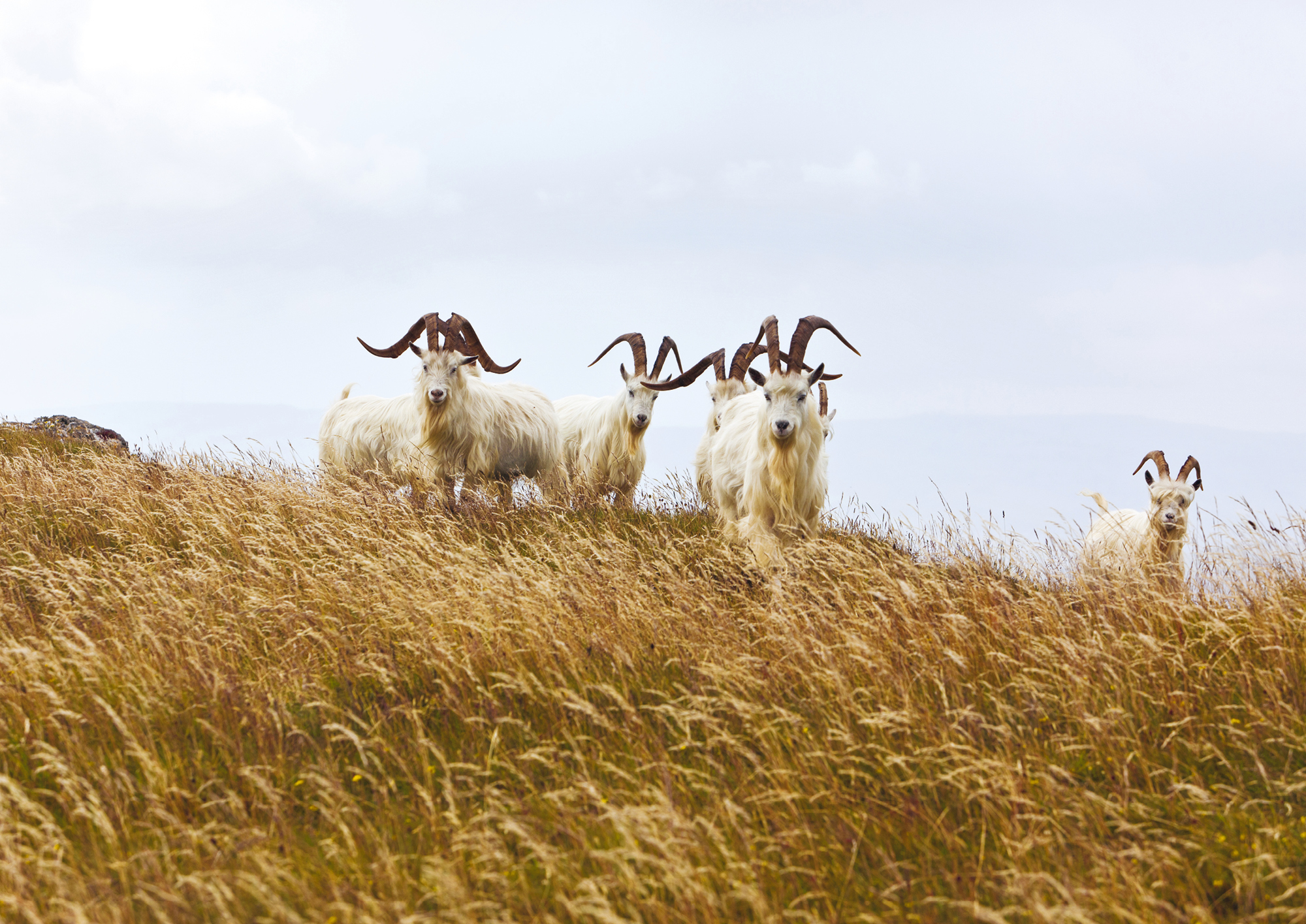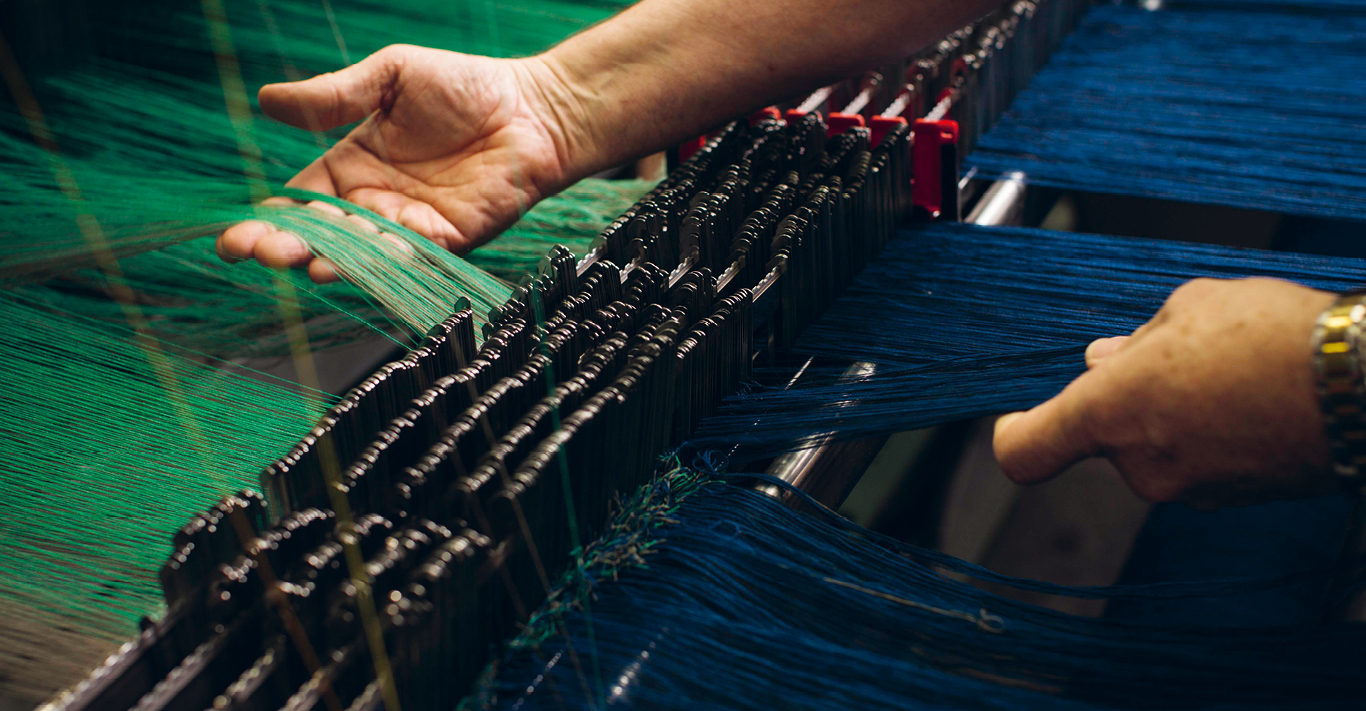WORDS
Jemima Wilson
Established in 1797, Johnstons of Elgin is Scotland’s second oldest family business and the UK’s largest independent producer of luxury cashmere and fine wool. As well as boasting 224 years of traditional craftsmanship expertise, year after year the company continues to strive to reduce its environmental footprint and social impact by combining time-honoured skills with pioneering sustainability initiatives to help preserve the planet for generations to come.
‘When we talk about sustainability at Johnstons of Elgin, we try to cover every aspect of our product’s life and truly value every thread,’ explains the brand’s chief executive Simon Cotton. ‘Throughout our history, we have stayed true to this ethos through animal welfare initiatives, grassland preservation, fair work, reducing manufacturing waste, and so much more.’
It is no surprise then, that as a testament to the company’s unwavering commitment to sustainability, in April 2021 it received the Queen’s Award for Enterprise in the sustainable development category, for its 360-degree strategy around sustainability and its revolutionary approach to ethical manufacturing. This is not the first but fourth Queen’s Award for the manufacturer, which has previously been recognised with the Queen’s Award for Export Achievement in 1978, 1994 and 2002.

As one of only two vertical mills in the UK that still processes raw cashmere and fine woollen fibres right through to the finished product, the company is able to address its use of carbon in every stage of its processes, and it is continually working on ways to reduce its emissions on its pathway to carbon neutrality.
The textile industry is estimated to account for 10 per cent of global carbon emissions, yet from 2016 to 2020, Johnstons of Elgin successfully reduced its scope 1 and 2 carbon footprint by 53 per cent, by reducing its natural gas consumption and moving all of its electricity purchases to renewable sources.
When it comes to the materials the company uses to manufacture its beautifully crafted, high-quality garments, 99.88 per cent of the fibres it uses in its product range are natural, and cashmere and merino wool will biodegrade naturally in cold water and soil when they finally reach the end of their life, unlike non-biodegradable fibres such as polyester, viscose and nylon, which take between 20-200 years to degrade.
In 2019, the company launched the EveryYarn range, using leftover yarn from its main collections. And, for those who wish to revive precious jumpers or scarves they have worn for years, the brand’s repair service will lovingly restore your favourite Johnstons of Elgin pieces from general wear and tear, moth holes or pilling.
The origin of much of the brand’s cashmere is Mongolia, where the sprawling grasslands face destruction by overgrazing and global warming. As one of three founding members of the Sustainable Fibre Alliance (SFA) – a non-profit international organisation, formed in 2015, that works to sustain the pasturelands and welfare of animals in cashmere producing regions – Johnstons works closely with Mongolian cashmere goat-herders to address these environmental issues in the spirit of their own culture and traditions.
The company also continues to support the Australian merino-growing industry, helping to maintain the economy in this area, where the land is best suited to this use. For the manufacturing of its own yarns, Johnstons of Elgin only buys wool that has been Responsible Wool Standard (RWS) certified – a voluntary global standard that addresses sheep’s welfare and the land they graze on, providing complete traceability of wool and the safeguarding of soil health and biodiversity.
From the start of the supply chain in the Mongolian mountains to the factory floor in Moray, Scotland and its knitwear mill in Hawick, people are at the heart of the company, and even the company’s Scottish workforce, comprising more than 800 employees, is sustainable. The company’s own recruitment programme and training for young people enables the brand to retain skills in the local area, with families of two or three generations working within the company, so it is completely self-sustaining for the local community.





